
Vietnam ready to deepen comprehensive cooperation with the US
19:05 | 23/03/2025 08:30 | 15/02/2026News and Events
The strength of linkages
As one of the leading coffee enterprises in the Central Highlands, Dak Lak 2/9 Import-Export One Member Limited Liability Company (Simexco Dak Lak) manages a vast supply area involving tens of thousands of ethnic-minority farming households. According to Nguyen Dai Duong, Head of Simexco’s Sustainable Agricultural Development Division, the company is currently working with local farmers to develop nearly 100,000 hectares of sustainable coffee. Simexco not only purchases raw materials but also restructures the entire production zone.
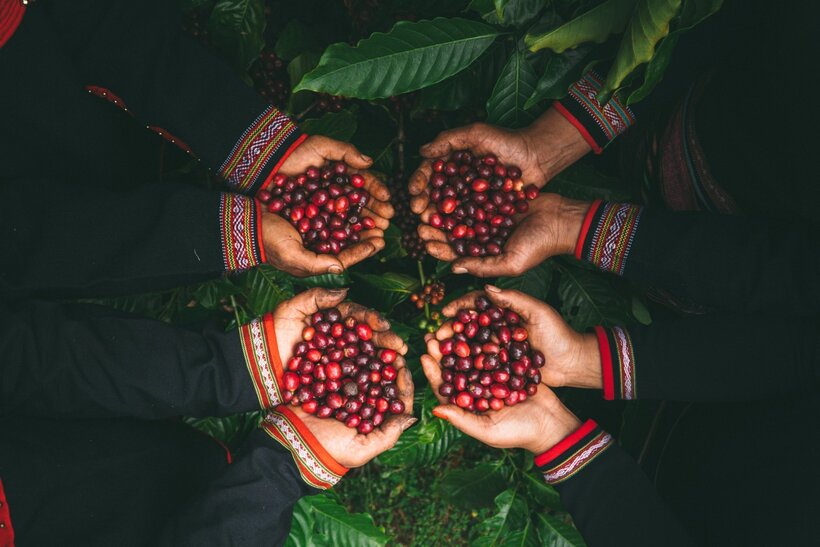
Simexco Dak Lak has built strong value-chain linkages with local farmers.
Simexco sends agricultural engineers directly to coffee farms to assist farmers including many ethnic-minority households in transitioning from traditional practices to standardized, internationally certified production methods such as 4C and Fairtrade. This transformation is gradual; some farmer groups require three to five years to fully adopt the new practices. However, when farmers see tangible improvements in productivity, quality, and selling prices, they begin to trust the process, comply with new standards, and remain committed.
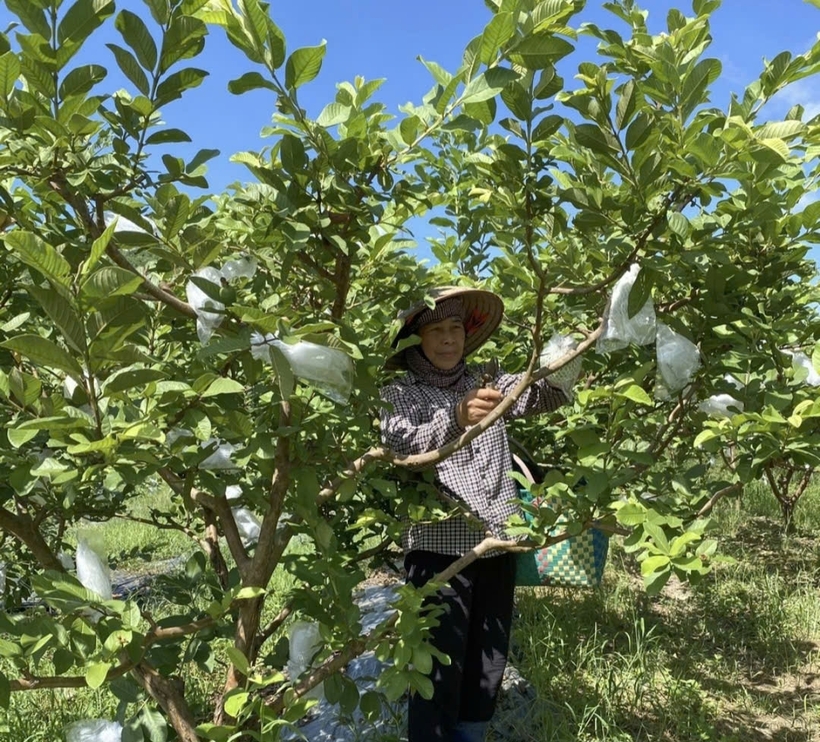
The Viet Hung Agro-Forestry and Fisheries Cooperative and its renowned Hoanh Bo guava products.
Simexco reinforces this trust by guaranteeing stable procurement and sharing added value when market prices rise. When enterprises genuinely support farmers, they gain confidence and perceive participation in the value chain as a pathway to higher income. This trust forms a solid foundation for the entire chain.
Currently, Simexco Dak Lak works with over 50,000 farming households across the Central Highlands, applying international standards and implementing electronic traceability to ensure transparency from farm to consumer.
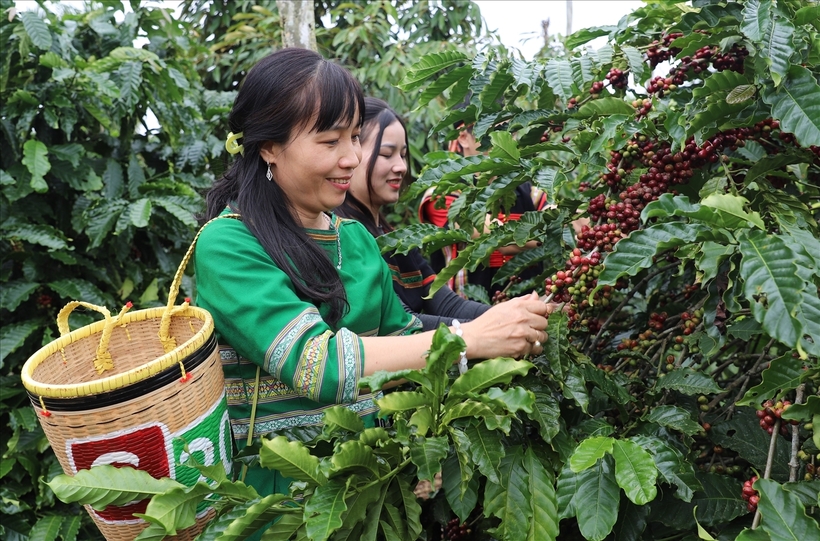
Value-chain linkages elevate ethnic minority agricultural products.
While enterprises drive market development, cooperatives play a key role in organizing production and ensuring quality. Nguyen Thuy Ha, representative of the Viet Hung Agro-Forestry and Fisheries Cooperative (Hoanh Bo, Quang Ninh), described cooperatives as the “bridge” between farmers and enterprises.
Within its value-chain model, the Viet Hung Cooperative requires farmers to sign commitments and comply with VietGAP procedures to ensure consistent product quality. Once an order is placed, the cooperative assumes full responsibility for quality and must provide explanations for any issues that arise.
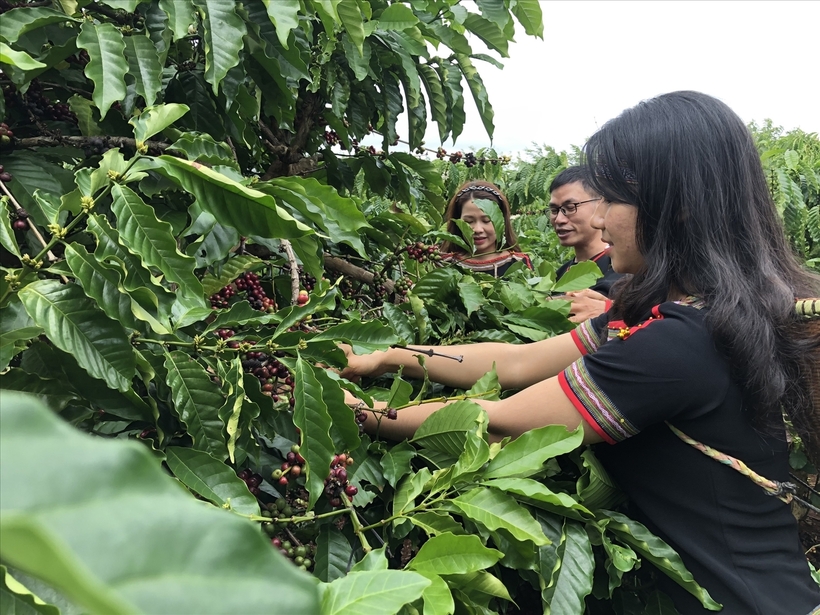
Farmers’ incomes rise thanks to value-chain participation.
“The new-model cooperative, with clearly defined roles and responsibilities, has become an effective solution for many localities. It reassures enterprises about supply, helps farmers learn standardized production, and enables scaling of raw-material areas. This is particularly important in ethnic-minority regions, where households often have small plots and limited access to technology, capital, and market skills. Cooperatives help connect them to the value chain,” Ha said.
Addressing fragmented production
Ethnic-minority and mountainous agricultural products have significant potential but often struggle to access major markets. Small-scale production, lack of standards, inconsistent quality, and unstable output hinder competitiveness. Experts emphasize that linkages are not optional; they are essential for these products to join modern value chains.
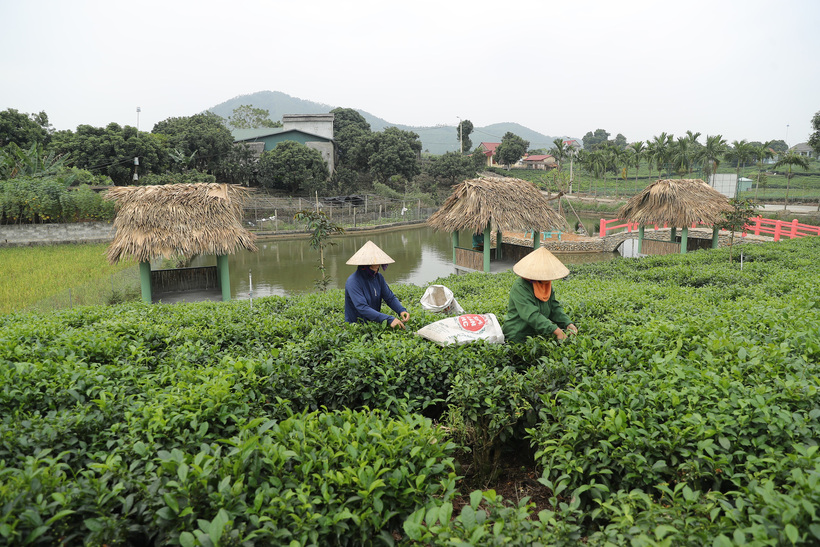
Chain linkages act as a ‘lever’ to enhance the value of ethnic minority products.
Dr. Le Quoc Phuong, former Deputy Director of the Industry and Trade Information Center under the Ministry of Industry and Trade, explained that all stakeholders must collaborate for products to reach distant markets: enterprises must guide the market and guarantee procurement; cooperatives must organize production; and farmers must comply with technical and quality standards. Without this three-party structure, forming a value chain and developing it sustainably is difficult. Market requirements are also tightening, especially in major export destinations like Europe. To enter retail systems, supermarkets, or e-commerce platforms, products must meet transparency, consistency, and traceability standards, which fragmented production alone cannot satisfy.
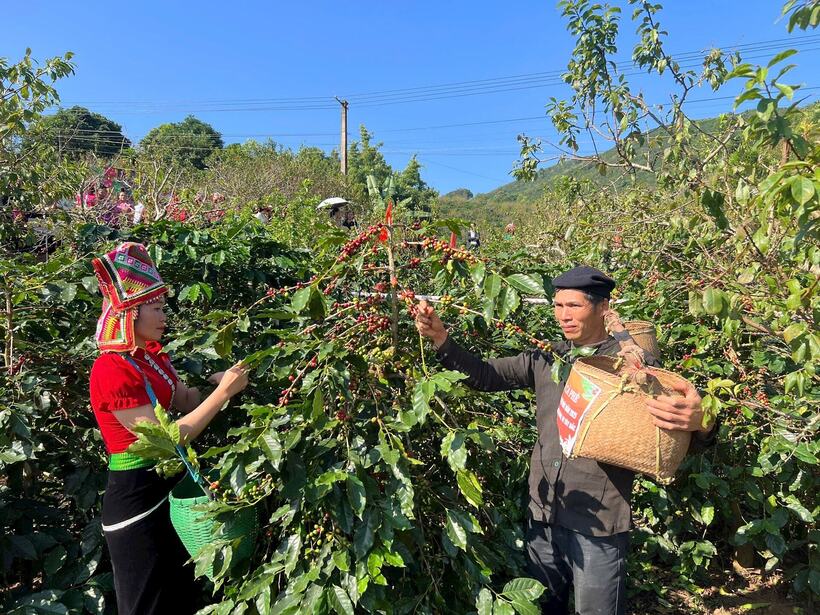
Vietnamese coffee gains global recognition as businesses and cooperatives support farmers.
In practice, value-chain development in ethnic-minority regions is often hindered not by technology but by traditional habits: indiscriminate harvesting, limited record-keeping, and reliance on experiential knowledge.
Simexco’s experience shows that change must be gradual and consistent, with close technical guidance. Persuasion often begins with simple explanations: why keeping farming diaries matters, why sorting beans is important, or why harvesting at the optimal ripeness improves quality. When farmers observe processing stages and see certified products achieving higher prices, they become more willing to adapt. Patience is crucial, as transforming farming mindsets is a long-term process.
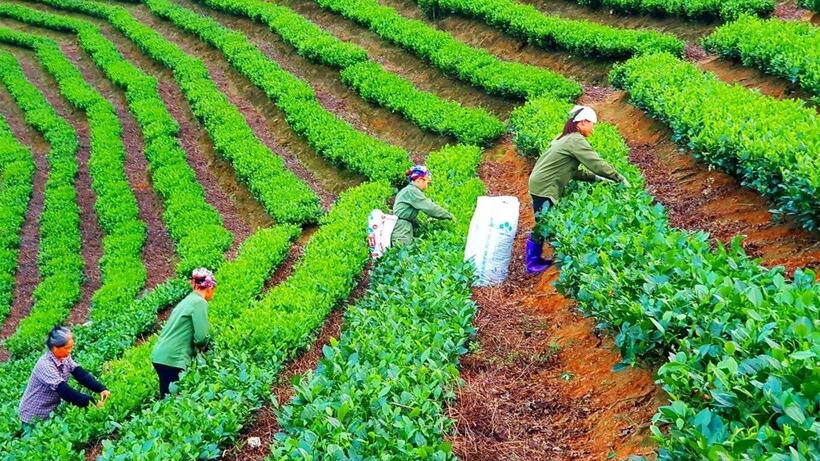
Ethnic minority farm products hold vast potential.
Nguyen Dai Duong noted that replanting support is a cornerstone of Simexco’s strategy. Since 2015, the company has supplied over 3.5 million high-quality coffee seedlings to replace aging trees, significantly boosting yields. Simexco has also supported the planting of 2.8 million shade and intercrop trees, such as pepper, durian, and avocado, to diversify income and improve farm microclimates.
The multi-layer agricultural landscape model has proven effective. In this system, farmers interplant tall fruit or shade trees and ground-cover crops with coffee. According to a household in Krong Nang (Dak Lak), this layered arrangement allows coffee to grow steadily year-round, stabilizes yields, and provides additional income from intercrops. Household income thus becomes more stable and significantly higher than under monoculture.
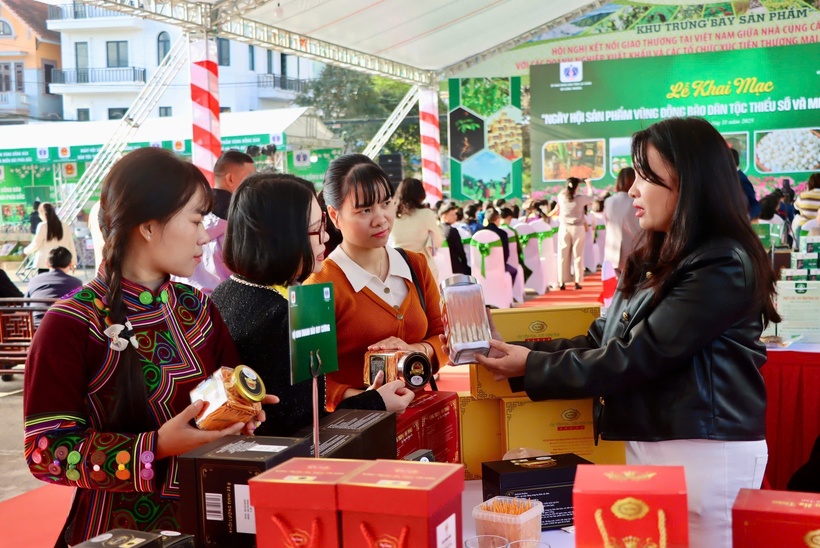
Ministries and agencies have organized many events to promote the consumption of ethnic-minority products.
Intercropping has long been shown to increase income per hectare. In the early 2010s, many farmers in Dak Lak intercropped pepper with coffee, earning exceptional profits during the pepper price boom. Later, as pepper prices declined, they shifted to fruit trees such as durian, avocado, and macadamia. According to a local coffee farmer, intercropping fruit or industrial crops can triple income per hectare compared with coffee monoculture - a 200% increase on the same land area.
The role of local authorities and ministries
In many areas, agricultural products still face disconnection between production and consumption due to the absence of purchase contracts, registered production unit codes, and processing facilities. Across Vietnam’s ethnic-minority regions, specialty products from Seng Cu rice in Lao Cai to Shan Tuyet tea in Tuyen Quang and Arabica coffee in Quang Tri have significant potential but struggle to scale or enter domestic supermarkets and export markets due to limited value-chain development.
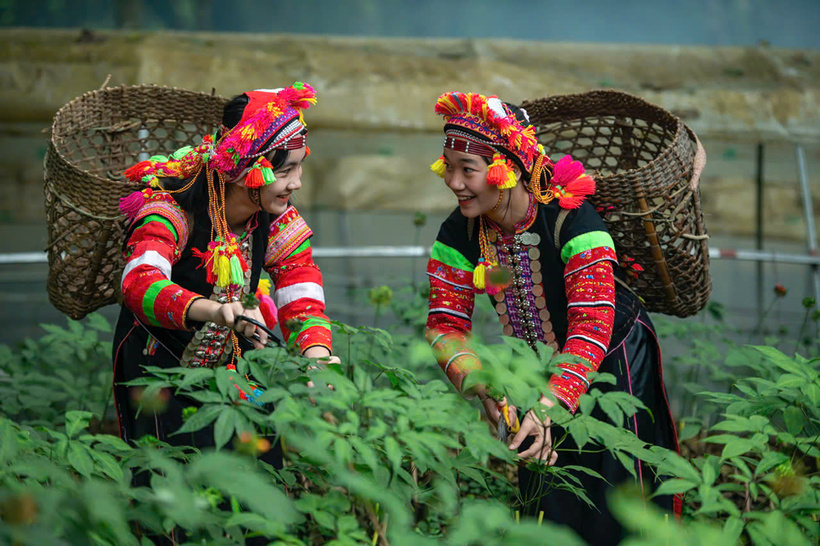
Ethnic-minority communities increasingly participate in linkage activities.
Dr. Le Quoc Phuong emphasized that value-chain linkages are sustainable only when local authorities play their proper role. The State does not replace enterprises or cooperatives but must support contract frameworks, legal services, zoning of raw-material areas, technical transfer, and market information. In some localities, authorities even act as arbitrators in linkage agreements, resolving disputes and protecting both farmers and enterprises. This model is particularly valuable in ethnic-minority regions where access to market information and negotiation skills remains limited.
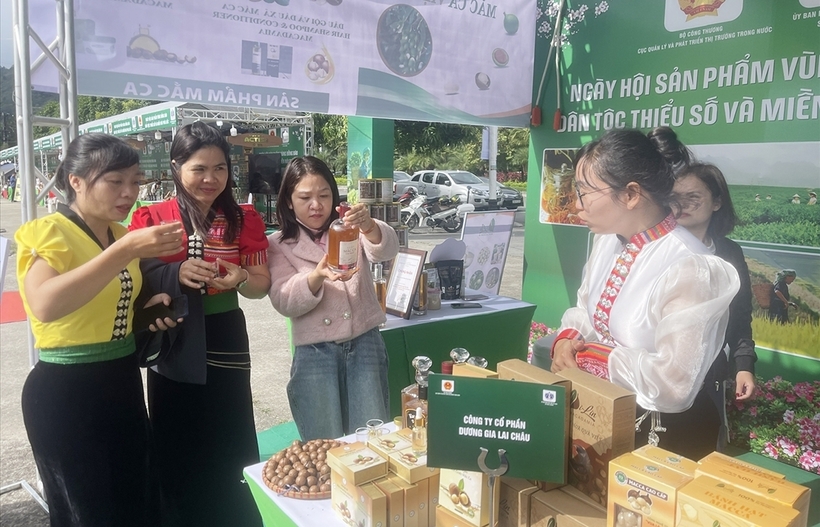
Ethnic-minority agricultural products are increasingly favored by consumers.
Practical experience, particularly from coffee production in the Central Highlands, shows that value-chain linkages are the only viable path for ethnic-minority agricultural products to enter modern markets. When enterprises are committed, cooperatives are professional, farmers comply with standards, and authorities provide support, these products can achieve better prices and stronger market positions.

19:05 | 23/03/2025 08:30 | 15/02/2026News and Events

19:05 | 23/03/2025 08:25 | 15/02/2026News and Events
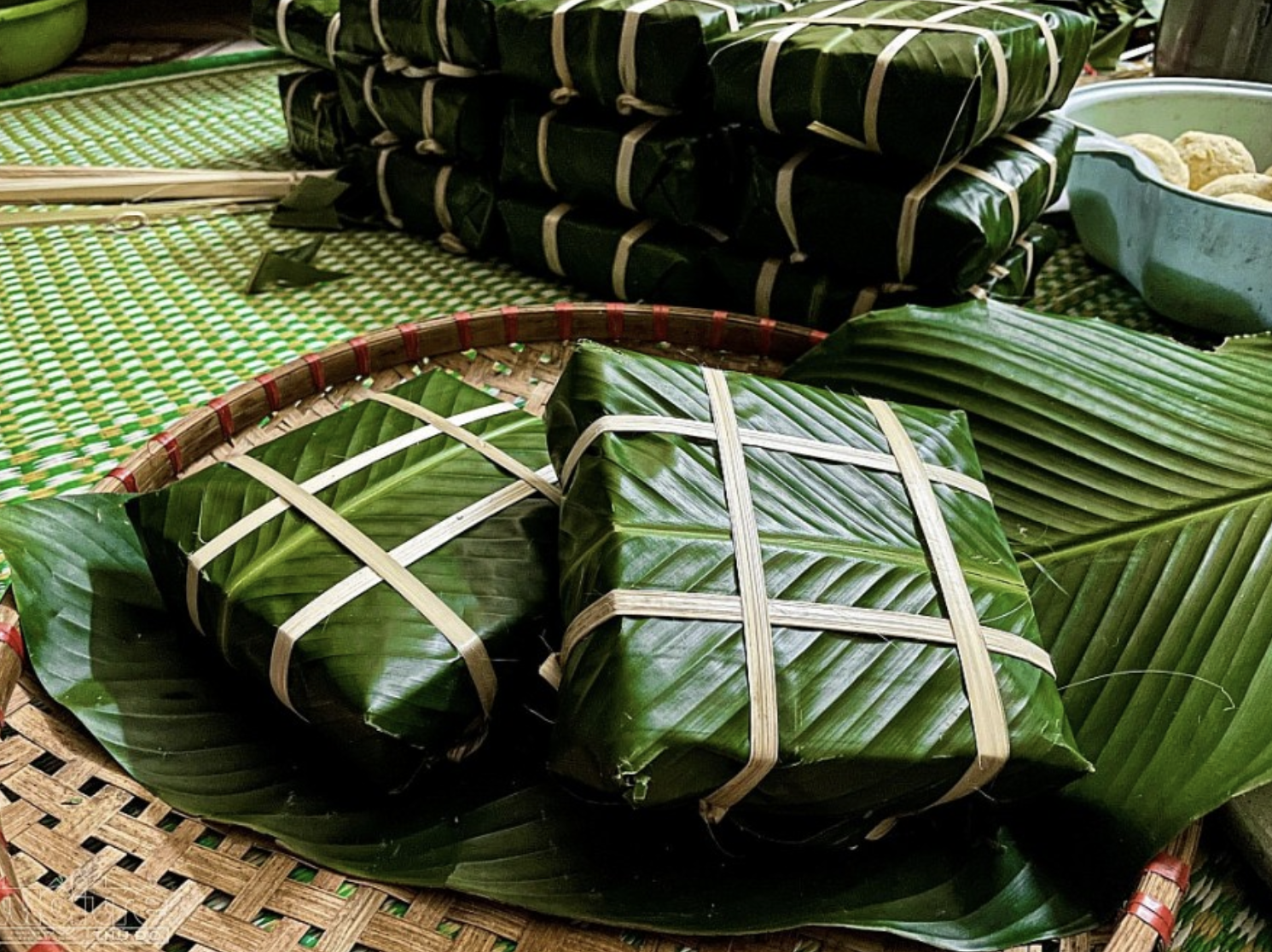
19:05 | 23/03/2025 16:44 | 14/02/2026Tourism

19:05 | 23/03/2025 16:33 | 14/02/2026Home Page

19:05 | 23/03/2025 16:32 | 14/02/2026Trade